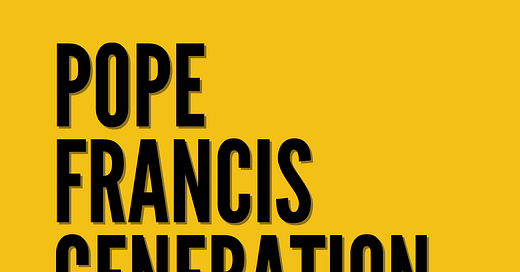Earlier this week, Pope Francis spoke to participants in a conference hosted by the Alphonsianum, a Pontifical Institute dedicated to moral theology and named after St. Alphonsus.
Francis emphasized the importance of conscience and called for moral theology to be living and pastoral, responding to the real needs of the faithful. He also urged moral theologians to listen to people and use transdisciplinary research methods to address bioethical challenges. The pope said, “The approach to bioethics must be attentive to the real dramas lived by people who often find themselves confused in the face of the moral dilemmas of life.”
The Catechism says that the Church is both mother and teacher. I think that Francis is able to capture both of those ideas in regards to moral theology. Here’s a key passage:
Vatican Council II states that moral theology, nourished by the Sacred Scripture, must help the faithful to understand the greatness of their vocation, and to bring Christ’s charity into the world.
Every moral-theological proposal has, in the final analysis, this foundation: the love of God is our guide, the guide of our personal choices and our existential journey. As a consequence, moral theologians, missionaries and confessors are required to enter into a living relationship with the People of God, engaging in particular with the cry of the least, to understand their real difficulties, to look at existence from their perspective, and to offer them answers that reflect the light of the eternal love of the Father.
Faithful to Alphonsian tradition, you try to offer a model of Christian life that, with respect for the demands of theological reflection, is not however a cold morality, theoretical morality, I would say a “casuistic” morality.
…You are asked for a model that responds to pastoral discernment filled with merciful love, aimed at understanding, forgiving, accompanying and, above all, integrating. Being ecclesial presupposes this: integration.
In keeping with the work of Saint Alphonsus, you began you Conference by reflecting on the conscience and on the dynamism of its formation. This is an important theme. Indeed, in the complex and rapid epoch change we are living, only people endowed with a mature conscience will be able to exercise, in society, a healthy evangelical agency in the service of their brothers and sisters.
Besides, conscience is first and foremost the place where every person “is alone with God, whose voice echoes in his depths.” The word it says is not its own, but comes from the very Word of the Creator, who was incarnated to be with mankind. And it is in his school, the school of the Incarnate Word, that each person learns to dialogue with others, cultivating the aspiration to a universal fraternity, rooted in the recognition of the inviolable dignity of every person.
You can read the whole address here:
https://www.vatican.va/content/francesco/en/speeches/2023/march/documents/20230323-accademia-alfonsiana.html




I appreciate your brief report on this important document. I trust I will be able to read and mediate on the original speech by Pope Francis, for that reason I appreciate too your including the link to it.